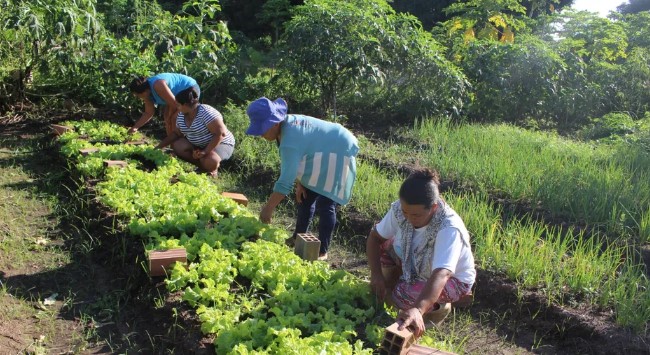Mahatma Gandhi National Rural Employment Guarantee Act (MGNREGA): A Pillar of Rural Empowerment
Introduction
As we all know, employment is the cornerstone of economic stability and social dignity. But what happens when jobs are scarce, especially in rural areas, where most of the country’s population resides? India has found an answer in the form of the Mahatma Gandhi National Rural Employment Guarantee Act (MGNREGA).
What is the Mahatma Gandhi National Rural Employment Guarantee Act (MGNREGA)?
The MGNREGA is a ground-breaking social security measure that aims to provide at least 100 days of guaranteed wage employment in a year to every rural household willing to do unskilled manual work.
History of MGNREGA
Pre-MGNREGA Era
Before MGNREGA, rural India suffered from high levels of unemployment and underemployment, particularly during non-agricultural seasons.
Enactment and Implementation
In 2005, the Indian government took a bold step towards tackling rural unemployment by enacting the MGNREGA.
Evolution over Time
Since its inception, MGNREGA has evolved to meet the changing needs of rural India, focusing not just on employment but also on creating durable assets and infrastructure.

Key Features of MGNREGA
Employment Guarantee
The act guarantees at least 100 days of wage employment per year to rural households. This provides economic security and reduces migration to urban areas for work.
Gender Equality
MGNREGA promotes gender equality by ensuring one-third of the beneficiaries are women, thereby empowering them economically.
Inclusivity
MGNREGA is inclusive, covering all adult members of a rural household willing to do unskilled manual work, irrespective of their social or economic status.
Drought Proofing
MGNREGA projects often focus on water conservation and drought proofing, which further contribute to rural development and environmental sustainability.
Impact of MGNREGA on Rural India
Economic Impact
MGNREGA has significantly impacted rural economy by providing a source of income during lean periods, creating productive assets, and stimulating local economy.
Social Impact
By promoting gender equality and inclusivity, MGNREGA has also led to notable social changes in rural India.
Challenges faced by MGNREGA
Administrative Hurdles
Implementing MGNREGA on a vast scale is not without challenges. There are issues related to administrative efficiency, including delay in wage payments.
Delayed Wages
One of the key challenges is the delay in wage payments, which often disincentivizes people from taking up MGNREGA work.
Misappropriation of Funds
There have also been instances of fund misappropriation, leading to less than optimal results.
Successful Case Studies
Case Study 1
One of the successful stories of MGNREGA is in the state of Rajasthan, where the Act has been used to build thousands of water harvesting structures, transforming the arid landscape.
Case Study 2
In Kerala, MGNREGA funds have been effectively used to revive the traditional rice-fish cultivation system, leading to increased agricultural productivity.
Government Initiatives to Improve MGNREGA
Digitization
The government has initiated steps like digitization of MGNREGA processes to increase transparency and reduce leakage of funds.
Social Auditing
Social auditing is another initiative taken by the government to ensure proper utilization of MGNREGA funds.
Increased Funding
In light of the COVID-19 pandemic, the Indian government increased the allocation for MGNREGA to provide employment opportunities to returning migrant workers.
MGNREGA and the Future
Potential Reforms
There are potential reforms on the anvil for MGNREGA, including an increase in the number of workdays and linking wages to inflation.
Impact on the Post-COVID Economy
In a post-COVID world, MGNREGA will play a significant role in providing employment and supporting the rural economy.
Conclusion
The Mahatma Gandhi National Rural Employment Guarantee Act (MGNREGA) has truly transformed the rural landscape of India. It has provided a safety net for the rural poor while creating productive assets that aid in rural development. Despite the challenges, the successes of MGNREGA cannot be ignored, and with continuous reform and strong government support, it holds the promise of a better future for rural India.
FAQs
Q1: What is the Mahatma Gandhi National Rural Employment Guarantee Act (MGNREGA)?
A1: The Mahatma Gandhi National Rural Employment Guarantee Act (MGNREGA) is a social security initiative by the Indian government that guarantees at least 100 days of wage employment in a year to every rural household willing to do unskilled manual work. Enacted in 2005, it aims to enhance livelihood security in rural areas by providing at least 100 days of wage employment to every household whose adult members volunteer to do unskilled manual work.
Q2: What are the key features of MGNREGA?
A2: Key features of MGNREGA include a guarantee of 100 days of wage employment per year to rural households, a focus on promoting gender equality by ensuring at least one-third of beneficiaries are women, inclusivity by covering all adult members of a rural household willing to do unskilled manual work, and an emphasis on water conservation and drought proofing projects.
Q3: How has MGNREGA impacted rural India?
A3: MGNREGA has significantly impacted rural India in multiple ways. Economically, it has provided a source of income during lean agricultural seasons, created productive assets, and stimulated the local economy. Socially, the Act has contributed to gender equality, inclusivity, and rural development by creating infrastructure and promoting sustainable livelihood practices.
Q4: What are the challenges faced by MGNREGA?
A4: Despite its impact, MGNREGA faces several challenges including administrative inefficiencies such as delays in wage payments, misappropriation of funds, and issues related to the quality of assets created. The large-scale implementation of the Act also presents logistical challenges.
Q5: How has the government improved MGNREGA?
A5: The government has initiated several measures to improve the functioning of MGNREGA. This includes digitization of processes for transparency, implementation of social audits to ensure proper fund utilization, and increasing the allocation for MGNREGA, especially post the COVID-19 pandemic, to provide employment opportunities to returning migrant workers.
